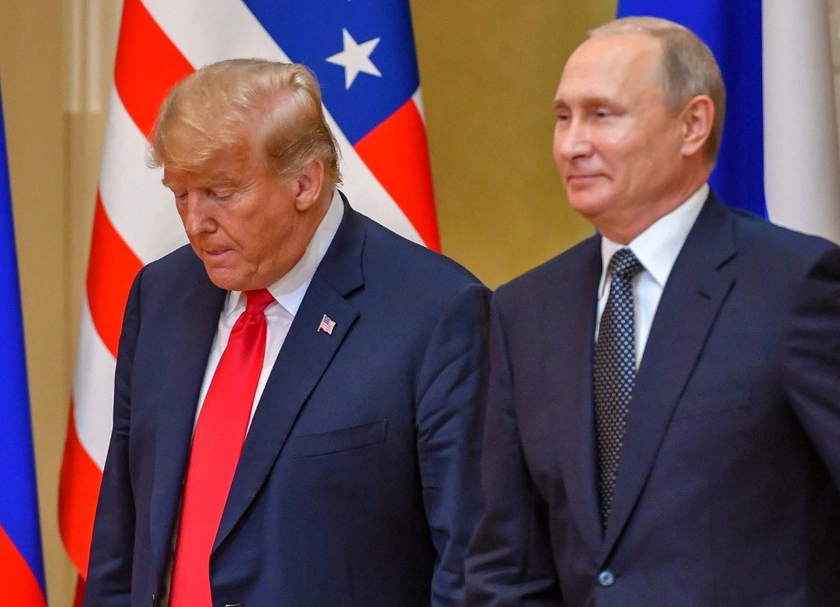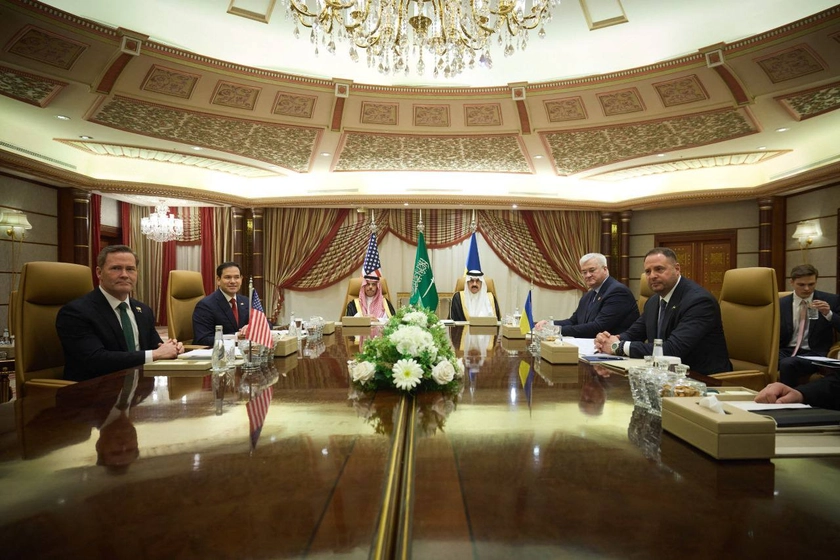The last working reactor at Ukraine’s Zaporizhzhia nuclear plant was disconnected from the grid after shelling caused a fire, with the UN’s atomic watchdog due to brief the Security Council about the crisis on Tuesday, Sep. 6.
Soon after it invaded in February, Moscow largely took control of the Kherson and Zaporizhzhia regions of southern Ukraine and is now aiming to absorb them into Russia through referendums — as it did with Crimea in 2014.
JOIN US ON TELEGRAM
Follow our coverage of the war on the @Kyivpost_official.
Russia also blamed Western sanctions for its halting of gas supplies to Germany and on top of the crisis in Europe, there are fears of a nuclear disaster at Zaporizhzhia — Europe’s biggest atomic facility.
“Today the last power transmission line connecting the plant to the energy system of Ukraine was damaged due to another Russian provocative shelling,” Ukrainian President Volodymyr Zelensky said in an address on Monday.
“Due to Russian provocation, the Zaporizhzhia plant is one step away from a radiation disaster.”
The Zaporizhzhia nuclear plant (ZNPP) has been shelled in recent weeks, with Ukraine and Russia blaming each other for the attacks as fears grow of a possible nuclear incident.
Ukraine’s state-run power company Energoatom said Monday that the last working reactor — Power Unit No. 6 — was disconnected from the grid because shelling had started a fire.
The IAEA said it was informed by Ukraine that the line would be reconnected when the fire is extinguished.
Trump Sees ‘Good’ Chance for Peace; Kyiv Denies Trump Claim of Ukrainian Troop Encirclement
The atomic watchdog was due to release a report Tuesday on its mission to the plant last week, with its chief Rafael Grossi scheduled to also brief the UN Security Council on the situation.
In 1986, Ukraine — a part of the Soviet Union at the time — was the scene of the world’s worst nuclear disaster, when a reactor at the Chernobyl plant exploded and spewed radiation into the atmosphere.
The attacks at ZNPP have prompted comparisons with that disaster, and the European Union’s foreign policy chief Josep Borrell on Monday accused Russia of “reckless behaviour”.
– Kherson referendum on hold –
After failing to capture Kyiv in the first weeks of the war, Russia has focused its attacks on the south and east of Ukraine.
Authorities installed by Moscow in the Kherson region of Ukraine on Monday suggested that plans for a referendum on joining Russia had been delayed.
Kirill Stremousov, a pro-Moscow official in Kherson, told Russian state TV that the referendum plans were on hold — but later moderated his comments saying it was not a pause, without mentioning a date for the vote.
“The referendum will take place no matter what. No one will cancel it,” Stremousov said in a video posted on Telegram.
Ukrainian forces have claimed gains in their counter-offensive in the south, saying they have recaptured several areas and destroyed targets including a warehouse containing referendum ballot papers.
Russia’s defence ministry said meanwhile it continued to inflict heavy losses on the Ukrainian army.
At his vineyard in southern Ukraine, near the city of Mykolaiv, Pavlo Magalias oversaw the harvest of his grapes with the sound of artillery resonating behind him.
“I’m the winegrower closest to the frontline”, said the 59-year-old, who is originally from Moldova.
Despite the bombs, Magalias said he has never thought of leaving.
“The war isn’t going to kill everybody,” he told AFP. “Life will win out.”
– Europe’s energy crisis –
Russia is a major energy exporter, and it has slashed gas supplies to Europe following Western sanctions over the invasion.
Power bills have soared across Europe, fuelling already rocketing inflation.
The Kremlin has blamed the “collective West — in this case the European Union, Canada and Britain” for the halt of Russian gas supplies to Germany, after key infrastructure was closed indefinitely for repairs.
Fears are growing of crippling winter gas shortages in Europe.
German Economy Minister Robert Habeck said Monday that it would keep two nuclear plants on standby beyond the end of the year “in case needed” for electricity — partly delaying a nuclear exit planned under former chancellor Angela Merkel.
Germany has already moved to restart mothballed coal power plants and fill gas storage ahead of the winter to guard against an energy shortfall.
Earlier Monday, Chancellor Olaf Scholz spoke with French President Emmanuel Macron, who said France was ready to deliver more gas to allow Germany to export more electricity.
You can also highlight the text and press Ctrl + Enter











